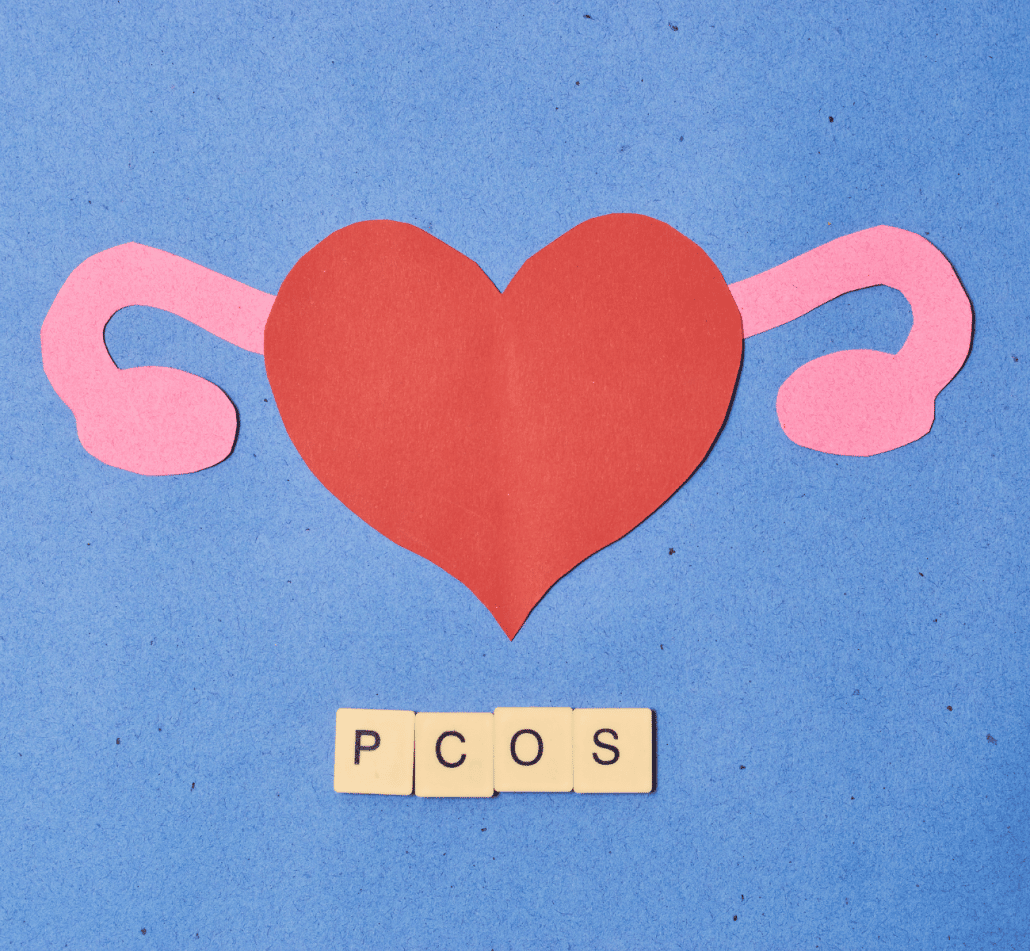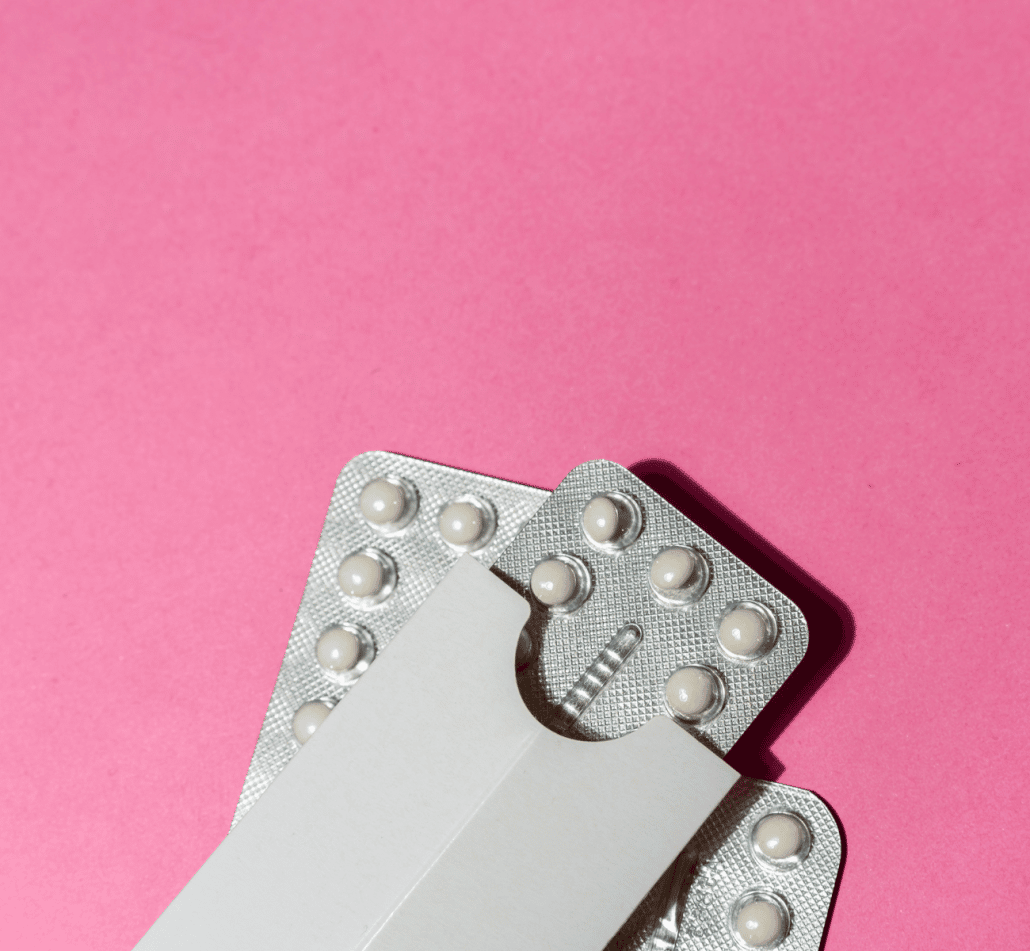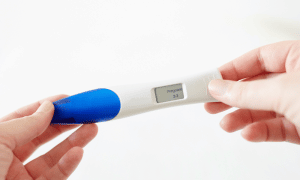Late Period, Negative Pregnancy Test & White Discharge – 7
If you have been trying to conceive, you may know that a late or missed period, accompanied by white discharge, can be a positive sign of pregnancy.
However, when you receive a negative pregnancy test alongside those symptoms, it can be confusing.
This article discusses the 7 reasons why you are experiencing a late period, negative pregnancy test and white discharge and more.
In this article:
- Is a Missed Period And White Discharge A Sign of Pregnancy?
- What Does White Vaginal Discharge Mean?
- When is White Vaginal Discharge NOT Normal?
- What Can Cause A Negative Pregnancy Test And White Discharge with No Period? – 7 Reasons Why
- When Should I Contact My Doctor About Late Periods, White Discharge and Negative Pregnancy Test?
Is a Missed Period And White Discharge A Sign of Pregnancy?
A missed period and white discharge can be a sign of pregnancy.
Leukorrhea is a mild, or odourless discharge that is either clear or milky white in colour.
Leukorrhea is often experienced at various points of your menstrual cycle, such as just before your menstrual period starts, or during pregnancy.
At the start of pregnancy, or during early pregnancy, many women notice that the amount of leukorrhea that they normally experience has increased.
An increase in leukorrhea is a potential sign of pregnancy.
Other potential pregnancy symptoms include:
- Nausea or vomiting (morning sickness)
- Fatigue
- Mood swings
- Headaches
- Missed period
- Implantation bleeding
- Heightened sense of smell
Ultimately, taking a pregnancy test is the best way to confirm pregnancy and avoid disappointment.
If you have received a negative pregnancy test, it may be that you are still too early in your pregnancy to receive an accurate result on a home pregnancy tests, so you should test again at a later date.
What Does White Vaginal Discharge Mean?

White vaginal discharge that is white and sticky, thick, slippery or wet is completely normal!
Women of any age can have white vaginal discharge.
Your amount of white vaginal discharge may increase and decrease at various points of your menstrual cycle, or during pregnancy.
You may find that, during pregnancy, or right before your period, you experience more creamy white vaginal discharge (called leukorrhea), where as during ovulation, you may experience clear, slippery discharge instead (called egg white discharge). Find out what watery discharge means.
When is White Vaginal Discharge NOT Normal?
We know that white vaginal discharge is a usual occurrence for women
If you have white vaginal discharge that…
- Smells fishy or has an unpleasant odour
- Is thick and white (with a cottage cheese like consistency)
- Is accompanied by pelvic pain or bleeding
- Is accompanied by blisters or sores
..then you may have a vaginal infection.
Below is a list of what infection each of the above symptoms points to.
If you have…
- White discharge accompanied by a fishy smell… then it may be Bacterial Vaginosis (BV)
- Thick and white discharge (like cottage cheese)…then it may be thrush
- White discharge accompanied by pelvic pain or bleeding….then it may be chlamydia or gonnorhoea
- White discharge with blisters or sores… then it may be genital herpes
Regardless of the symptoms, if you are concerned about your vaginal discharge, then you should consult your health care provider, who will be able to rule out any infections and prescribe the correct treatment.
What Can Cause A Negative Pregnancy Test And White Discharge with No Period? – 7 Reasons Why
We have established that white discharge and no period may be a sign of pregnancy, and when white discharge is normal, and when it isn’t.
Now, in this section, let’s take a look at the potential causes of a negative pregnancy test, white discharge and no period.
1) You Are Testing Too Soon!

Pregnancy tests work by detecting the hCG levels in your urine. The presence of hCG indicates pregnancy.
In order for the pregnancy test to show a positive result, hCG must be present in your urine AND at a high enough quantity. If the hCG levels in your urine are not concentrated enough, then a negative result will show.
It can take a few days for the positive result to show, following implantation.
It is recommended that you take a home pregnancy test no earlier than than the first day of your next period, or, if you are unsure when your next period is due, then at least 21 days after you last had unprotected sex.
If you take a pregnancy test earlier than this, then you risk receiving inaccurate results.
If you have taken a home pregnancy test earlier than the times mentioned above, then you should wait before testing again, to ensure the results you received are accurate!
If you have recently had your implant removed, you can read our article on When to Take a Pregnancy Test After Implant Removal?
2) False Negative Result
It is possible to receive a negative pregnancy test result when you are actually pregnant. These are called false-negative results.
False negative pregnancy test results is one of the pitfalls of home pregnancy testing.
False-negative results can be caused by the following:
- Testing too early – As discussed above, taking a pregnancy test too soon can actually result in a negative pregnancy test result, even if you are pregnant!
- Checking the pregnancy test results too soon – You should check the instructions to see when the results should be read!
- Using diluted urine – Have you been drinking a lot today? If so, then this may be the cause of your false negative result, especially if you are still one early pregnancy. For accurate results, you should use your first urine of the day.
- Did you know twins can cause a false negative test result?
If you are trying to decide what type of pregnancy test to use, why not check out our article: Are Digital Pregnancy Tests More Accurate?
If your results change, you can read our article what causes a faint positive pregnancy test then negative next day?
It is important that you know the difference between evaporation lines and faint positive results, to avoid disappointment. You can learn the differences here: Evaporation Line VS Faint Positive.
3) Polycystic Ovary Syndrome (PCOS)

Polycystic Ovary Syndrome (PCOS) is a hormonal disorder which can cause irregular periods that are infrequent or prolonged.
PCOS is also a common cause of infertility.
Polycystic Ovary Syndrome can cause you to have white discharge, a late period and a negative pregnancy test.
4) Hormones
Hormones play an important role in your physical and mental wellbeing- affecting things such as your appetite, mood and energy levels.
Whilst you know that your hormones can affect your appetite, mood and energy levels, did you know that your diet, exercise and stress levels can actually affect your hormone levels?
If your hormone levels are out of wack, it may cause you to miss your period, or for it to come much later than expected.
During this time, you may also find that you are experiencing white discharge (a common predecessor of your menstrual period) and that you received a negative pregnancy test.
Below are potential causes of messy hormone levels, which may have resulted in your missed period and white discharge:
- Stress
- Too much exercise
- Sudden weight loss
- Undereating
- Taking the contraceptive pill
- Being overweight
If you have had a negative pregnancy test and missed more than 3 periods in a row, you should consult your GP!
5) Birth Control Pills

If you are taking birth control pills, or have recently stopped taking birth control pills, then they may be the culprit of your missed period, negative pregnancy test and white discharge!
Birth control pills can affect your menstrual cycle- causing missed periods and irregular cycles- for up to 6 months after the pill is stopped.
6) Endometriosis
Endometriosis is a condition where the uterine lining grows outside of the uterus, in places such as the fallopian tubes and ovaries.
Endometriosis can cause late or abnormal periods.
Below are the potential symptoms of endometriosis.
- Irregular periods
- Late periods
- Painful period cramps that interfere with your daily activities
- Pain during or after sexual intercourse
- Pain in your lower abdomen or back
- Pain when urinating or having a bowel movement
- Feeling sick, having diarrhea, being constipated, having blood in your pee or poo during your period
- Difficulting becoming pregnant.
7) Ectopic Pregnancy
An ectopic pregnancy is where the fertilised egg implants itself somewhere outside of the womb, usually within one of the fallopian tubes.
An ectopic pregnancy is considered a medical emergency, and if left untreated, can result in a burst fallopian tube. This is a life-threatening situation.
An ectopic pregnancy cannot be saved.
Usually, an ectopic pregnancy shows a positive pregnancy test result, however, 1% of ectopic pregnancies show as a negative pregnancy test result.
This is because the levels of hCG are lower, and therefore harder to detect when the pregnancy is ectopic.
Below are potential symptoms of an ectopic pregnancy:
- A missed period
- Lower abdominal pain on one side
- Pain in the tip of your shoulder
- Discomfort when having a bowel movement
- Discomfort when urinating
- Vaginal bleeding or brown watery discharge
If you believe you might be having an ectopic pregnancy, you should consult your doctor as soon as possible.
When Should I Contact My Doctor About Late Periods, White Discharge and Negative Pregnancy Test?

As a general rule for everyone, if you are concerned: contact your doctor! If you would like some specific points at which you should contact your doctor, you can find them below:
- You have had 3 or more missed periods and a negative pregnancy test
- Your white discharge has a foul or fishy odour, is clumpy in consistency, is accompanied by any blisters or sores, or is accompanied by any unusual bleeding
- You have been trying to conceive for over a year, or have been struggling with infertility (they may offer you a blood test for pregnancy, to determine whether or not you are currently pregnant).
Why not check out our next article Negative Pregnancy Test Turned Positive After Several Hours?

My name is Louise and I am the Digital Marketing and Administrative Assistant at MyBump2Baby. I have been writing in the parenting niche for over 2 years specialising in fertility, pregnancy, baby and baby name support articles.


















